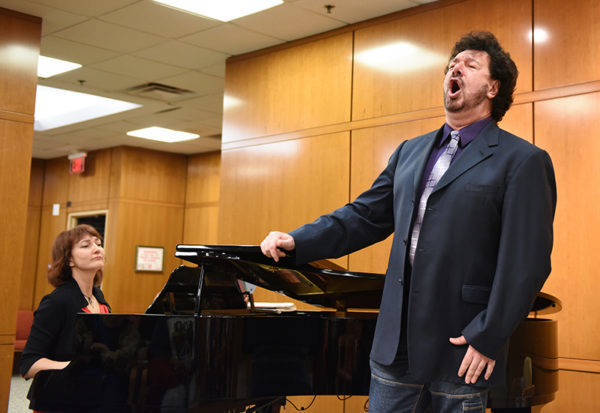The first strains of a melody or the opening lyrics of a song can transport us back in time, evoking memories and improving psychological well-being. Whether an instrumental piece of music or a favorite song, music can transport us to a peaceful place.
At the Selfhelp Home, an active and engaging not-for-profit senior living community on Chicago’s North Side, music has long been part of the community’s cultural legacy.
At the core of the community are residents originally from Europe who have a strong musical and cultural appreciation, especially for opera and classical music. Frequent concerts are designed to appeal to them, as well as to other residents with a range of musical tastes.
The Selfhelp Home hosts 80 to 100 live concerts each year, says program director Fern Shaffer, making Selfhelp a venue for some of the most renowned local musicians. Top-notch talent performs at the weekly Sunday afternoon music series, including performers from the Lyric Opera, Chicago Symphony Orchestra and the Ryan Center for the Musical Arts.
In addition to the Sunday music series, additional concerts are tied to holidays and other events. Fourth of July concerts showcase patriotic music; Jewish holidays feature liturgical music; and New Year’s Eve might feature playful Broadway showtunes.
Mid-week concerts often include performances by up-and-coming young students. In addition to the classical concerts, programming includes some popular music and jazz to attract different audiences.
Music stirs the soul, providing an emotional and cultural connection. “When some people hear the Maxwell Street Klezmer Band, it reminds them of what they grew up with. So it’s an emotional release,” Shaffer says.
“Our audiences are in their late 80s and 90s to 100s, so a lot of activities are not going to be participatory. Music is a way of reaching people and engaging them,” Shaffer says. “Music is lively. They’re tapping their feet and dancing in their seats.”
The concerts give residents a chance to enjoy high-quality performances, all within a convenient setting.
“It’s a crown jewel of the Selfhelp Home as far as I’m concerned,” says resident Donald Davidson, 81. “The Sunday concert series is something special. By and large, it’s hard to beat the talent we get.”
“Many of us were regular concertgoers,” says Davidson, who was formerly associated with the Old Town School of Folk Music and was an amateur folk dancer. “To have the same talent come here, how could you not appreciate it?”
The benefits of music are far-reaching, Shaffer says. And at the Selfhelp Home, the robust musical programming definitely strikes the right note.
[shh_box]
Music and Memory
4 WAYS that Music Improves The Quality of Life.
Research has looked at the interaction of music, memories and emotions and has shown that music can improve quality of life.
- Music has a strong emotional tie. A 2013 brain imaging study in the journal NeuroImage found that music activated the auditory, motor and limbic (emotional) regions. Music with lyrics (the study used The Beatles’ Abbey Road) showed a stronger emotional correlation than music without lyrics, though both had a strong association.
- Music can decrease anxiety, anger, stress and frustration. Research has shown that listening to music is associated with changes in pulse and respiration rates as well as blood pressure levels.
- Melody helps embed memories. Learning information, such as the ABC song or Fifty Nifty United States, is made easier when there’s a tune attached to it.
- Music can activate the salience network of the brain, which is relatively spared as Alzheimer’s disease progresses. Because of this, individuals with Alzheimer’s may remain very responsive to music from their past, say researchers at the University of Utah Health.


